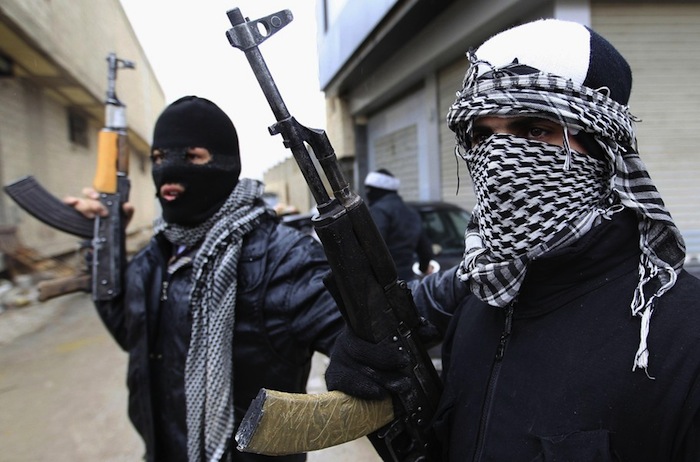

02/05/2014
Young jihadist fellows can learn combat and bombing techniques when they volunteer to kill for Allah on the Syrian front. It’s not a bad thing when hostile Muslims are energetically blasting each other, but the survivors from Europe and the United States will have deadly new skills to employ when they return home.
Has anyone noticed yet that Muslim immigration in the name of total diversity has been a really bad idea? Not every Muslim is a murderous Soldier of Allah, but some are, so why admit any?
Fox News’ Greg Palkot reported on Tuesday that the number of fighters in Syria from America is estimated to be 70, but that’s nothing compared to the nearly 2,000 trained jihad killers who may head back to Europe after Syria is done.

One of the reasons this subject has come up has been intelligence hearings in the House and Senate in recent days. You can watch Tuesday’s House Intelligence Committee hearing Global Threats to the U.S. on C-SPAN that includes the new FBI Director Comey, as well as CIA Director Brennan and DNI Director Clapper.
Top intelligence chiefs warn Syria could become base for attacks against US, By Jennifer Griffin, Fox News, February 04, 2014
For the second time in a week, the nation’s top intelligence chiefs Tuesday issued a scathing assessment of the global threats facing the United States, warning that Syria is becoming a base from which extremist, Al Qaeda-linked groups could attack the U.S.
“We are concerned about the use of Syrian territory by the Al Qaeda organization to recruit individuals and develop the capability to be able not just to carry out attacks inside of Syria, but also to use Syria as a launching pad,” said CIA Director John Brennan at a hearing before the House Permanent Select Committee on Intelligence.
“There are camps inside of both Iraq and Syria that are used by Al Qaeda to develop capabilities that are applicable, both in the theater, as well as beyond.”
Director of National Intelligence James Clapper put the threat assessment in stark terms: “Looking back over my more than half a century in intelligence, I have not experienced a time when we’ve been beset by more crises and threats around the globe,” he said.
Clapper and Brennan were joined at the hearing by the head of the FBI, James Comey, Defense Intelligence Chief Gen. Mike Flynn and Matt Olson, who heads the National Counterterrorism Center.
The Syrian insurgency, Clapper said in opening remarks, is made up of between 75,000 and 110,000 fighters from about 1500 different groups.
“Complicating this further are the 7500 or so foreign fighters from some 50 countries who have gravitated to Syria,” Clapper told the committee.
“Among them are a small group of Af-Pak Al Qaeda veterans with aspirations of external attack in Europe, if not the homeland.”
Rep. Mike Rogers, R.-Mich., the powerful committee chairman, attacked NSA leaker Edward Snowden.
In an exchange with the head of the Defense Intelligence Agency, he suggested Snowden is working with the Russians and that the Russians likely have access to all of the Snowden documents, and the NSA’s deepest secrets.
In an uncomfortable exchange, the chairman had to coax DIA chief Flynn to give his assessment about whether there is evidence that Snowden is a spy.
“Do you believe that Mr. Snowden has the possibility to be under the influence of Russian intelligence services?” Rogers asked Flynn, who at first hesitated and then said, “yes, possible.”
Meanwhile at the White House Tuesday, Gen. Joe Dunford, the top U.S. commander in Afghanistan, scheduled a meeting with President Obama and his national security team to brief them on the way ahead in Afghanistan and how many troops he needs post-2014.
Clapper gave his assessment of the future in Afghanistan: “We know our vital national security interest there will not cease. We need to maintain our intelligence efforts there, even after the military withdraws,” Clapper said.
“Core Al Qaeda and the Taliban will continue to represent a threat, but we must not forget that Afghanistan is more than a front in the counter-terrorism war.
“Afghanistan has broader strategic implications. It borders both Iran and Pakistan, and is close to both Russia and China.”